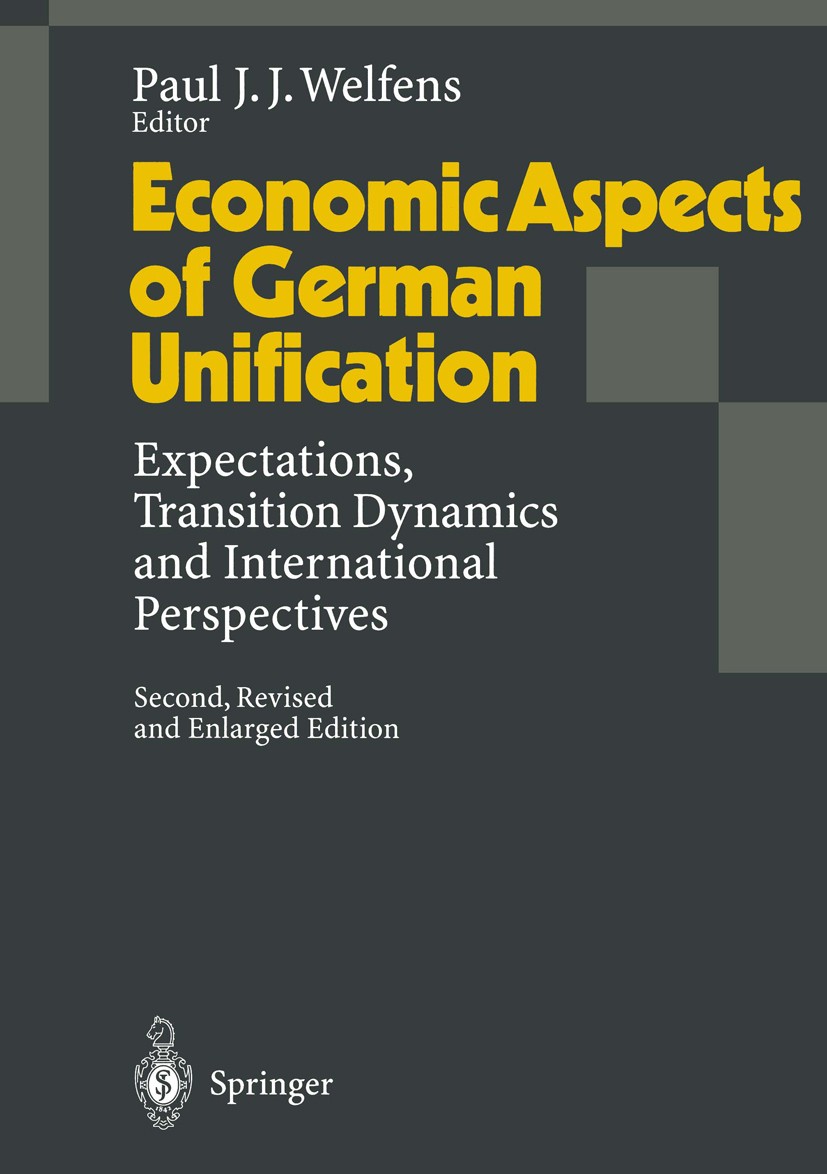| 书目名称 | Economic Aspects of German Unification |
| 副标题 | Expectations, Transi |
| 编辑 | Paul J. J. Welfens |
| 视频video | http://file.papertrans.cn/302/301501/301501.mp4 |
| 图书封面 |  |
| 描述 | Paul J. J. Welfens The editor is pleased to present a second edition of Economic Aspects of German Unification which includes new chapters and several postscripts. Almost five years after unification output in the ex-GDR is back to its 1989 level. Due to a massive intra-German resource transfer consumption per capita in eastern Germany has not fallen as much as output and employment which reduced by one-fifth within three years. Given high West German transfers which represented about 5% of West German GDP and more than 50% of East German GDP the fall of industrial output could have been much stronger than had politically been feasible. Hence structural change necessary for productivity growth was dramatic in the ex-GDR where the goods producing sector (manufacturing, mining, energy and construction) strongly changed its proportions; within four years construction almost doubled, and the share of investment goods production reduced by 10 percentage points between 1990 and 1994 and is· now down to 21. 1 %. Mining lost two-thirds of its share in the producing sector which itself was reduced relative to GDP. The share of the services industry increased by 5 percentage points between 1 |
| 出版日期 | Book 1996Latest edition |
| 关键词 | Deutschland; European Integration; European Union (EU); Germany; Polis; Systemtransformation; Wiederverein |
| 版次 | 2 |
| doi | https://doi.org/10.1007/978-3-642-79972-3 |
| isbn_softcover | 978-3-642-79974-7 |
| isbn_ebook | 978-3-642-79972-3 |
| copyright | Springer-Verlag Berlin Heidelberg 1996 |
 |Archiver|手机版|小黑屋|
派博传思国际
( 京公网安备110108008328)
GMT+8, 2025-12-25 01:33
|Archiver|手机版|小黑屋|
派博传思国际
( 京公网安备110108008328)
GMT+8, 2025-12-25 01:33


